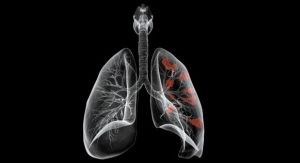Article
Lung Cancer Detection, Treatment Measures Featured in Report on Top Advances
Author(s):
The American Society of Clinical Oncology's list of the top five advances in cancer screening, prevention, and treatment over the last year includes two that address lung cancer: a finding that detection with CT scans leads to reduced lung cancer deaths and the FDA's approval of crizotinib to treat non-small-cell lung cancer in patients whose tumors have a specific mutation.

Two of the top five advances in cancer screening, prevention, and treatment over the last year address lung cancer, according to the American Society of Clinical Oncology. The society’s annual report on progress against cancer, which also singled out several other notable advances regarding lung cancer, was published online earlier this month in the Journal of Clinical Oncology.
Since lung cancer is generally detected at a stage so far advanced that surgical cures are difficult, the society lauded a screening trial finding that CT scans demonstrated significantly better results than chest X-rays in detecting lung cancer and preventing death from it. In the trial, 53,454 participants aged 55 to 74 who had smoked at least a pack of cigarettes per day for at least 30 years received three annual screenings with either low-dose CT scan or single-view chest X-ray.
The rate of positive screenings was 24% in the CT scan group and 7% in the X-ray group. False positive rates were approximately 95% for both groups. In all, 1,060 cancers were detected in the CT group and 941 in the X-ray group. There were 356 deaths in the CT group compared with 443 deaths in the X-ray group, equivalent to a 20% reduction of deaths in the CT group. “This is the first randomized trial to our knowledge to find a definitive reduction in lung cancer deaths with screening,” the report reads.
The second top advance relating to lung cancer involved the FDA’s approval of Xalkori (crizotinib) in August to treat advanced non-small-cell lung cancer in patients whose tumors have a specific mutation in the anaplastic lymphoma kinase (ALK) gene, an example of successful personalized medicine approach to treating lung cancer. Approximately 11,000 people in the US are diagnosed with ALK-positive lung cancer each year.
In addition, the report identifies the work of the recently formed Lung Cancer Mutation Consortium as a notable advance. The consortium examined more than 1,000 patients with advanced-stage lung cancers and found at least one of 10 recognized genetic driver mutations in tumors of nearly two-thirds of them. This suggests that analyzing tumors for mutations at diagnosis could help drive treatment, as many of the mutations can be targeted by drugs currently approved for use, and others are being targeted by drugs in clinical trials.




